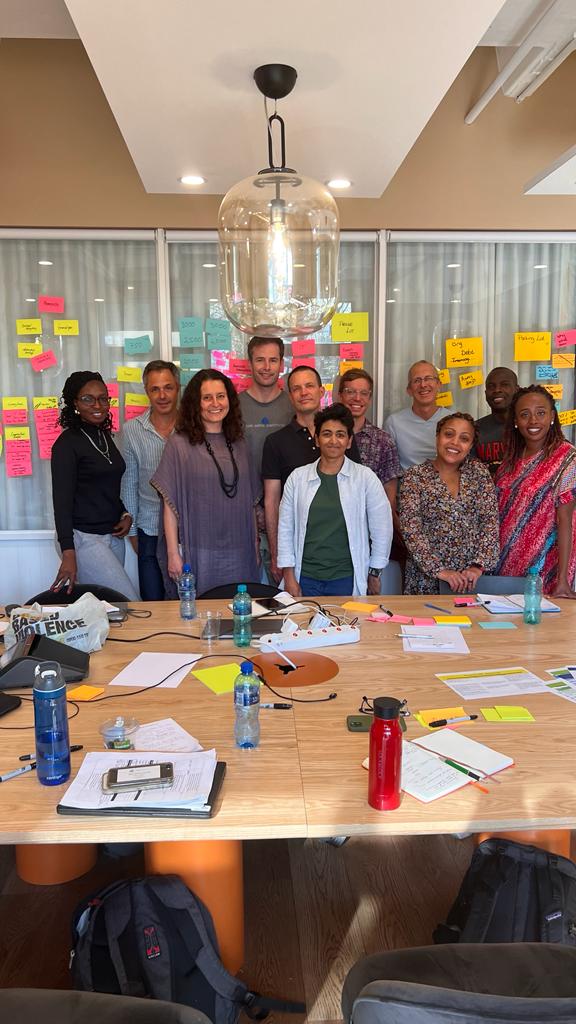
Strengthening leadership and management capabilities: The Role of leaders and Managers towards effective Monitoring and Evaluation
By Evelyn Kaumba, LGT Impact Fellow for AMP Health
One of the key documents I was privileged to read when I joined AMP Health was a report developed by High Level Council on Leadership and Management for Development. The following statement in the report made me reflect deeply on my role in the organization:
“Too often leadership is conflated with positions of authority. In contrast, we see leadership as a mindset, a set of skills and behaviors that can be learned and, like a muscle, become stronger with practice. Our view is that these skills can be taught and anybody, regardless of their job title or social status can become a more effective leader”
AMP works to support governments to build visionary and effective teams by focusing on leadership and management skills across a range of programs in public health. Therefore, the results being tracked are mainly ‘soft skills’ that are intangible, relational and social in nature. Of course, this means that the teams (leaders and managers) have a major role to play.
While many agree on the importance of supporting governments to strengthen leadership and management skills, this type of work poses an interesting set of monitoring and evaluation challenges. In my LGT Impact Fellowship role as the Monitoring, Evaluation and Learning (MEL) Manager at AMP Health, I am supporting the team to assess how supporting public sector teams to develop their leadership and management skills can contribute to improved health outcomes.
AMP Health has a holistic, team-based approach to strengthening leadership and management capabilities. We believe that the power of systems change lies in the hands of teams, not just individuals. We also believe that leadership skills and management skills are both essential to have a lasting impact.
Over the past three years, AMP has fielded and refined their MEL tools to ensure that the framework aids in our efforts to provide a comprehensive picture of the progress that teams make throughout their partnership with AMP Health.
At AMP, we aim to support our partner teams to achieve their own goals more effectively by improving their leadership and management skills and serving as a thought-partner in tackling some of the challenges that they face. We therefore assess our own success by considering the extent to which our partner teams have achieved the goals that they have set for themselves.

As MEL Manager, I work closely with the AMP Team as well as our government partners to ensure that we are tracking progress and that we can articulate how improved leadership and management skills contribute to stronger health systems. This is done through a combination of qualitative and quantitative tools that aim to answer the following questions: Are individual leadership and management skills improving? Are teams becoming more effective at achieving their own goals? Are these skills and improved team effectiveness contributing to improvements in the health system? Are we meeting the expectations of our partner teams?
This information is useful not only in testing AMP’s theory of change, but in informing the learning content that we develop for our partner teams.
During my time at AMP I hope to support the organization to develop the systems to continue tracking their impact as they scale, and to find ways of making MEL data available in a way that is easy to understand and can inform decision-making.


Thanks again!